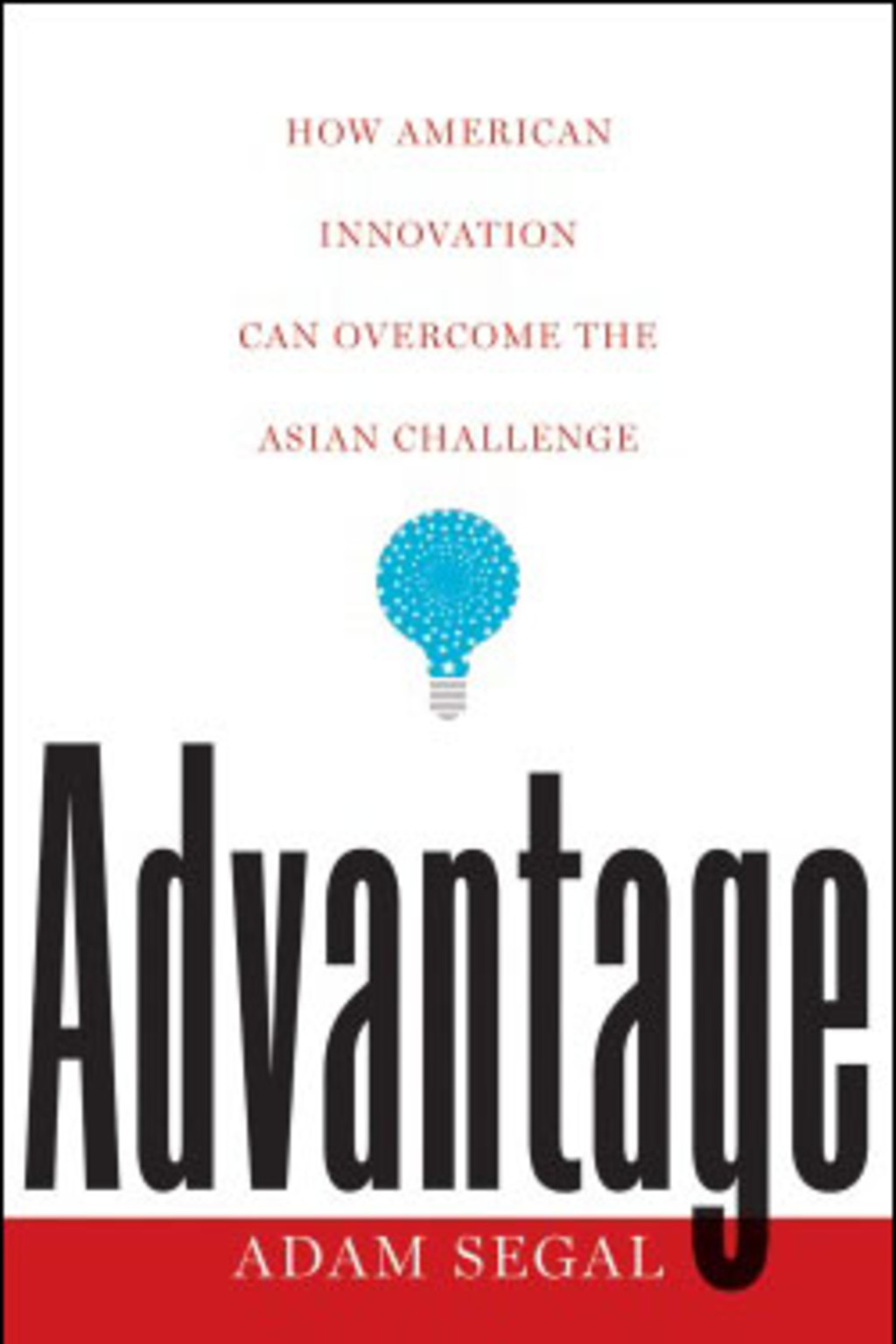Advantage
How American Innovation Can Overcome the Asian Challenge
A contrarian analysis of how the United States can succeed in the technological race with Asia.

- Publisher
- W. W. Norton
- Release Date
- January 2011
- Pages
- 288
- ISBN
- 978-0-393-06878-8
As the United States struggles to emerge from recession, India and China’s continued robust growth is the subject of much concern and interest. In his new book, Advantage: How American Innovation Can Overcome the Asian Challenge, Council on Foreign Relations (CFR) Senior Fellow Adam Segal analyzes Asia’s technological rise, questions assumptions about the United States‘ inevitable decline, and explains how America can preserve and improve its position in the global economy by optimizing its strength of moving ideas from the lab to the marketplace.
Segal explains that Asia’s growth has been fueled by its “hardware of innovation”—growing middle classes that will eventually outstrip the spending power of Americans, a cheaper labor force, more students studying to become engineers, and increased money pouring into research and development.
However, Segal maintains that the region lacks a “software of innovation”—a cultural, social, and political framework that enables and sustains a new-idea generation. As an example, he cites a survey conducted by China Daily that found 60 percent of graduates with doctorates admitted they had copied someone else’s work.
India’s main problem, he writes, is a decrepit educational system. “A 2007 study rated two-thirds of [India’s eighteen thousand colleges and universities] and found that 90 percent of the degree-granting colleges were poor or middling quality.”
Through his research, Segal concludes the United States has an advantage over Asia in the realm of the software of innovation. “In America, your ideas can make you rich. Intellectual property is protected, and individual scientists are able to exploit their breakthroughs for commercial gains,” he writes. “It is time to realize that software in its most expansive sense offers the most opportunities for the United States to ensure its competitive place in the world.” The challenge is “to recover a culture of innovation that was driven underground, overshadowed by sexy credit default swaps and easy spending.”
Reviews and Endorsements
By far the most sophisticated analysis of the complexity of international relationships between the U.S. and emerging economies.
This lucid, stimulating analysis shows why America’s open, multicultural society can make a significant contribution to innovation in the decades to come . . .
Publishers Weekly
A must for policymakers.
Kirkus Reviews